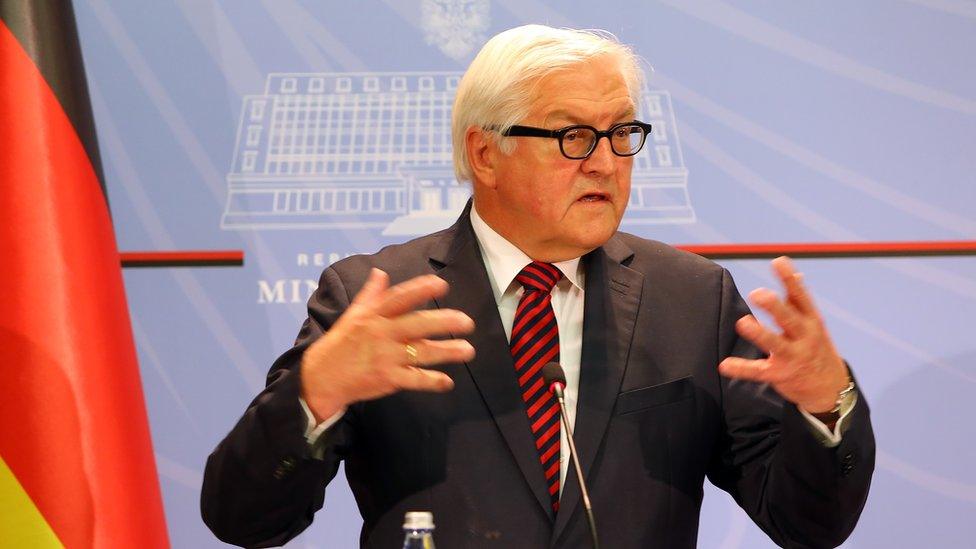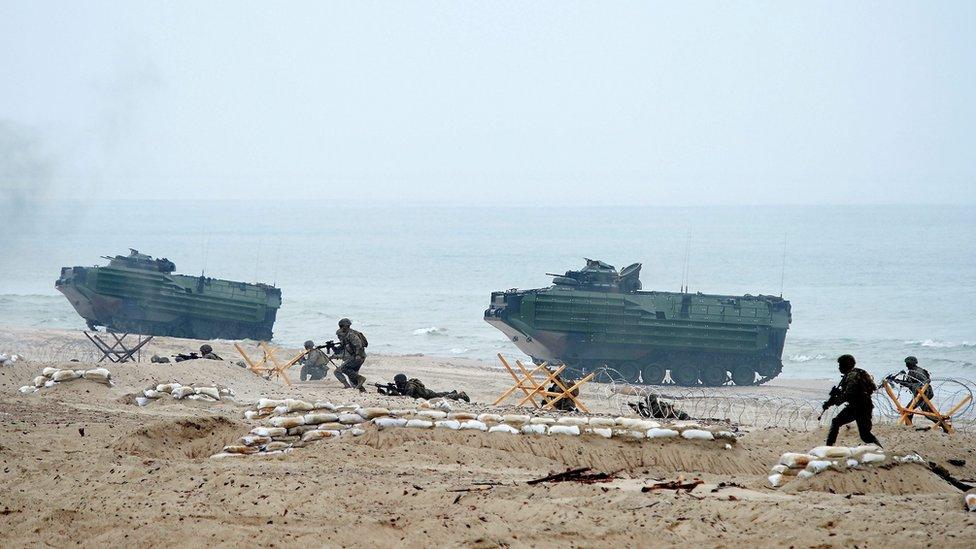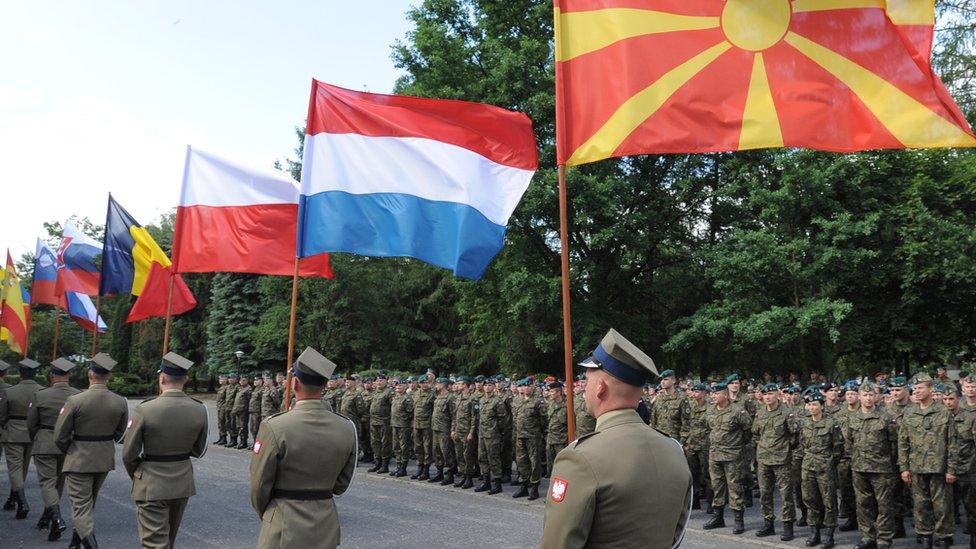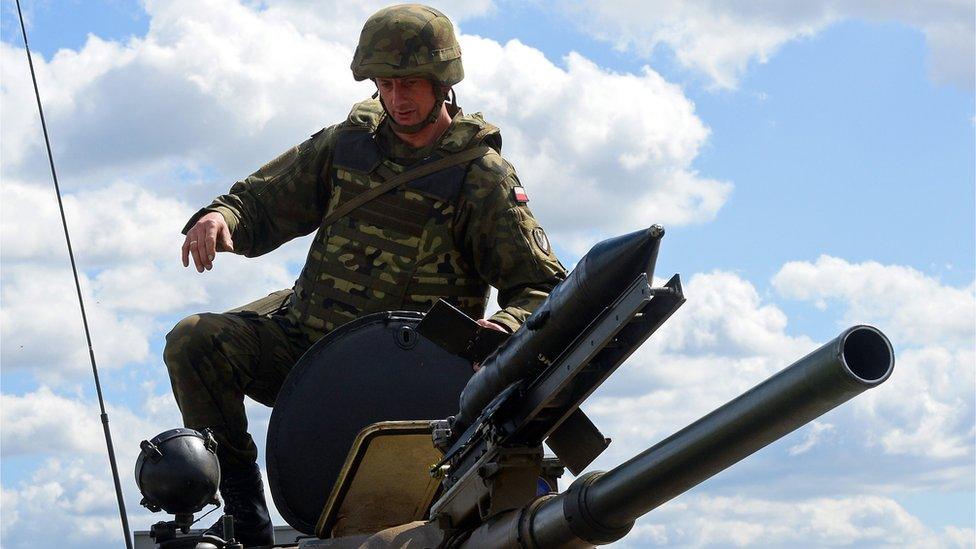German minister warns Nato against 'warmongering'
- Published

Frank-Walter Steinmeier warned Nato against enflaming tensions with Russia
German Foreign Minister Frank-Walter Steinmeier has warned Nato against "warmongering", after it conducted military exercises in Eastern Europe.
Mr Steinmeier said that extensive Nato manoeuvres launched this month were counterproductive to regional security and could inflame tensions with Russia.
He urged the Nato military alliance to replace the exercises with more dialogue and co-operation with Russia.
Nato has carried out a 10-day exercise simulating a Russian attack on Poland.
The drill, which ended on Friday, involved about 31,000 troops, as well as fighter jets, ships and 3,000 vehicles.
Russia has been strengthening its military presence near its borders. In February it held a combat-readiness exercise involving 8,500 troops in a southern region near areas of eastern Ukraine held by pro-Russian rebels.
In 2013, Russian jets staged a simulated attack, external on the Swedish capital Stockholm.
'Do not create pretexts'
"What we shouldn't do now is inflame the situation further through sabre-rattling and warmongering," Mr Steinmeier said in an interview to be published in Germany's Bild am Sontag newspaper.
"Whoever believes that a symbolic tank parade on the alliance's eastern border will bring security is mistaken.
"We are well-advised to not create pretexts to renew an old confrontation," he said, adding that it would be "fatal to search only for military solutions and a policy of deterrence".
The exercise in Poland, which takes place every two years, was intended to test Nato's ability to respond to threats, and to allay fears in eastern Europe since Russia's annexation of Crimea.
Nato spokesperson Oana Lungescu said the alliance's actions were "defensive, proportionate, and in line with our international commitments".
She said the alliance had maintained dialogue with Russia through the Nato-Russia Council, although practical co-operation had been suspended, following the annexation of Crimea in 2014.
In an interview with the Bild newspaper on Thursday, Nato Secretary General Jens Stoltenberg said Russia was seeking to create "a zone of influence through military means", with "massive militarisation" at Nato borders.
Russia has repeatedly said that the presence of Nato troops near its borders is a threat to its security.

Troops from Poland, the US, 17 other Nato member nations and from five partner nations are taking part
- Published6 June 2016

- Published3 June 2016
